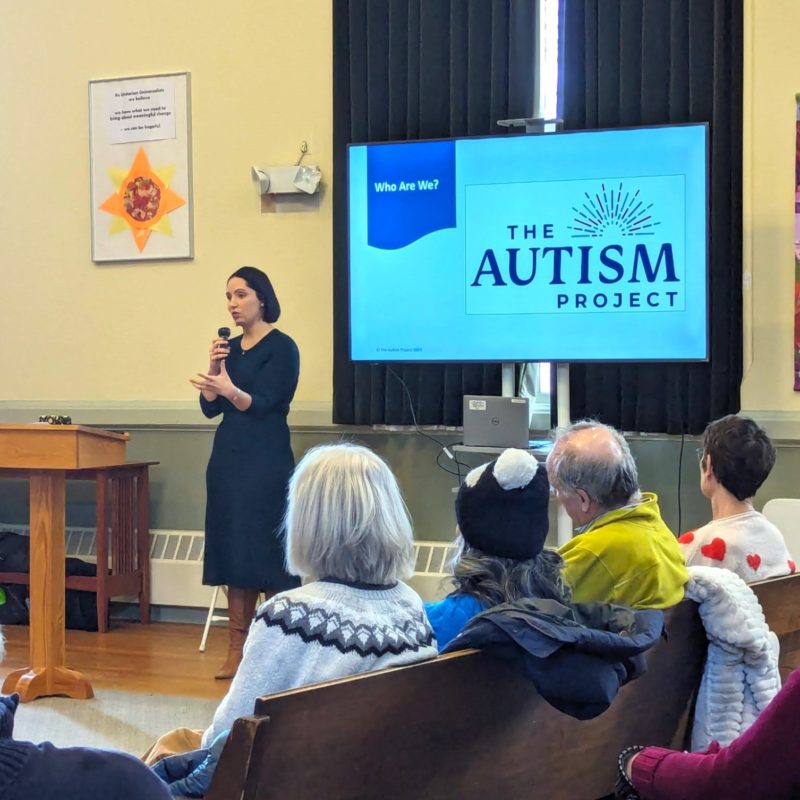Learning with The Autism Project©
Providing education and workshops enables The Autism Project to carry out our mission. These trainings provide college and university staff with evidence-based tools and strategies while simultaneously engaging the audience through storytelling and first-hand accounts. Through the application of learned material, educators will create classrooms where learning and creativity are at the center of every day, for every student.
The Autism Project offers a range of autism-informed training opportunities, including individual workshops, full-day trainings and multi-week series. Our team provides training both in-person and online. For a printable summary of our trainings, please review the catalogues below.
2025-2026 Workshop Catalogue - Higher Education
Exploring Autism: A Deep Dive
“Exploring Autism: A Deep Dive” is designed to provide participants with up-to-date information on the neurodevelopmental characteristics of autism. This workshop is appropriate for those who are new to autism, as well as for those with decades of experience. Topics are broken down into the following categories: diagnostic criteria, coexisting medical conditions, social communication, sensory processing, and cognition. Participants will leave this workshop with a deeper understanding of the unique influence of neurodevelopment on each autistic individual. “Exploring Autism: A Deep Dive” celebrates autistic people while discussing the unique characteristics that require a supportive and empathetic environment.
Recommended for ALL participants.
Sensing Our World: How the 8 Sensory Systems Impact Regulation
Most autistic people experience the world in an atypical way. Some may be hypersensitive to input. Others are hyposensitive. Most are a combination of these two sensory responses. Participants will discuss the 8 sensory systems, the impact of atypical modulation on the experience of sensory input, and strategies to assist with regulation.
Recommended Prerequisite: Exploring Autism
Supporting Executive Functioning in the Classroom
A transition into higher education means that, for many students, they are being asked to navigate the academic environment with complete independence. Moving from a highly structured and supportive system and into a world where executive functioning skills are expected, many neurodivergent students have significant challenges. During this presentation, the audience will explore executive functioning challenges from a variety of perspectives and discuss supports and strategies to help students thrive in their classrooms and beyond.
Recommended Prerequisite: Exploring Autism
Supporting Executive Functioning Outside the Classroom
For the first time, neurodivergent students are living on campus without a caretaker. Where a parent or guardian may have been monitoring their nutrition, sleep, and activities of daily living at home, the student is now being asked to manage these tasks on their own. During this training, the audience will discuss challenges to executive function that will impact daily living, and how to provide support and strategies for those challenges.
Recommended Prerequisite: Exploring Autism
College Students at Work
As part of many university programs, students will have internships/jobs on campus or in the community. How can staff members support those students to assist in learning the soft-skills necessary for the work environment? Strategies in the following areas will be discussed: Self-Advocacy, Time Management, The Hidden Curriculum, Workload Management, Dysregulation, & Communication.
Recommended Prerequisite: Exploring Autism
Supporting a Neuroinclusive Workforce
As colleges and universities prepare to send their students out to work or intern with local businesses, it is essential that those businesses have a firm understanding of what it means to properly support neurodivergent employees. How can they assist employees with sensory challenges? How can they help to support executive functioning? What steps can be taken to facilitate group work? How can they foster a sense of belonging in the workplace? We will answer these questions, and more, during this interactive two-hour workshop.




